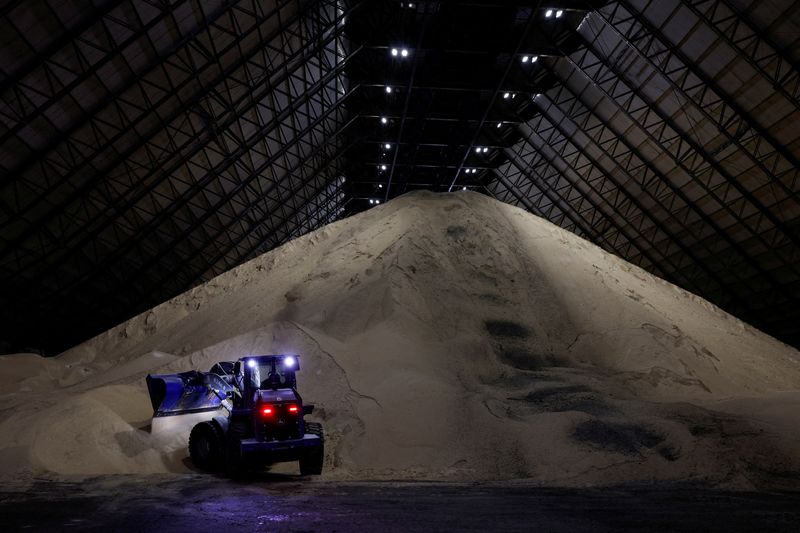By Marcelo Teixeira
NEW YORK (Reuters) - Brazil cane mills will boost their sugar production capacity as much as 10% in the new season from April to take advantage of relatively high sugar prices and as increasing supplies of corn make the grain a cheap feedstock for ethanol output.
Brazil is the world's largest sugar producer. It accounted for nearly 50% of global sugar trade last year as unfavorable weather due to the El Nino climate pattern reduced output and exports from competitors India and Thailand.
Sugar prices have dipped from a 12-year peak hit in November, but are still historically high. Brazilian mills are rushing to complete expansions or new plants to boost their sugar production capacity, analysts said.
"Every mill that can do it (boost sugar capacity), is doing it," said Julio Maria Borges, a director and partner at JOB Economia e Planejamento, an advisory firm.
"The difference on financial returns between sugar and ethanol is just too big."
Sugar prices are currently 60% higher than Brazilian ethanol prices, broker and supply chain services provider Czarnikow said in a report this week. It is the widest price gap in 15 years.
Among some of the largest sugar investments are Jalles Machado's 170 million reais ($34.19 million) plant in Minas Gerais state, Cerradinho Bionergia's 289 million reais factory in Mato Grosso do Sul and Coruripe's 200 million reais new sugar production line also in Minas Gerais.
France's Tereos, which has seven plants in Brazil, plans to allocate 70% of its sugarcane for sugar production, and 30% to ethanol. That is a boost from the already high level of 67% last season.
Many other mills are making smaller adjustments, optimizing sugar installations. Cane allocation towards sugar production - and away from ethanol production - across Brazil last year was the largest in 12 years at 49%. Most analysts expect it to be a record in the new season.
CLIMATE HIT
Despite the increase in sugar production capacity, Brazil is unlikely to produce more of the sweetener in the new season than it did in 2023/24.
"We had (in 23/24) a climate that was like laboratory, just perfect," Borges said.
"It rained well at the right time, and then was dry for harvest. We are not seeing this now."
Cumulative rainfall in the main sugar area of Ribeirao Preto in Brazil this year, for example, is 50% below normal, according to GFS climate modeling.
Tereos expects Brazil's Centre-South (CS) sugarcane production to fall below 600 million tons in 2024/25 from 660 million tons in 2023/24.
Broker StoneX still projects a record sugar production in the new season at 43 million tons, saying the increase in cane allocation to sugar production, at the expense of ethanol, will offset a smaller sugarcane volume.
CORN ETHANOL
StoneX estimates that production of ethanol from sugarcane will fall by nearly 3 billion liters in 2024/25, or 10.4%, to 24.5 billion liters. It said output of corn-based ethanol, on the other side, will grow 16% to 7.2 billion liters.
"There is a change in the industry," said StoneX sugar and ethanol analyst Filipi Cardoso. "Corn-ethanol is more cost-efficient, so cane mills are going for sugar."
Corn production has expanded quickly across Brazil, which became the world's top corn exporter last year. That has also encouraged the expansion of corn-based ethanol production. Typically, ethanol in Brazil has been made from sugar cane rather than ethanol.
"Brazilian corn ethanol production was less than 1 billion liters five years ago and this crop it could reach 5 billion liters, and 10 billion in the next 5-6 years," said Citi analysts.
Brazil is one of the world's largest consumers of ethanol as a transport fuel. The biofuel accounted for 46% of light vehicle fuel use in Brazil in 2023, or 28.5 billion liters.
The rapid expansion of corn ethanol production, however, has capped prices for the biofuel in Brazil, another factor that has encouraged sugar mills to focus on sugar.
